Materials Used in our Courses
School Counseling
Readings:
Films/Videos:
- "The new Jim Crow: Mass incarceration in the age of colorblindness," Michelle Alexander, 2012
- "White fragility: Why it’s so hard for white people to talk about racism," Robin DiAngelo, 2018
- "Reaching and teaching students in poverty: Strategies for erasing the opportunity gap," Paul C. Gorski, Second Edition, 2017
- "Why are all the Black kids sitting together in the cafeteria?," Beverly Daniel Tatum, 2018
Films/Videos:
Faculty Work
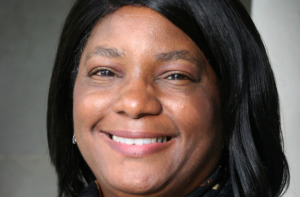
Charting ways to make science teaching more inclusive
How can we improve the teaching and learning of science and engineering? That was the over-arching question examined by an expert panel convened by the National Academies of Science, Engineering and Medicine. The panel — which included Eileen Parsons, a professor of science education who focuses much of her research and advocacy on equity in education — looked at ways to improve science and engineering learning and produced a report that included explicit discussion about past and current inequities in science and engineering education, and spelled out recommendations for addressing those inequities. The report described the need for more deliberate and effective work to provide equitable access for students from groups that have been excluded or marginalized in the past. The report said educators, including administrators, should pay particular attention to differential student outcomes, especially in areas in which inequities have been well documented, and use that information to make concrete plans to address the disparities.
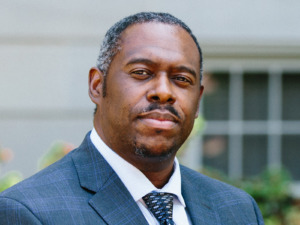
Autoethnography: Understanding the bias of the brain
On the first day of his "Autoethnography in/as Educational Research" class, professor Sherick Hughes talks about implicit and explicit biases, and the major impact they have on teachers and students in classrooms, and on society as a whole.
And, as autoethnography is a research methodology of critical self-reflection, he starts by exposing his own.
'Black Hands in the Biscuits Not in the Classrooms'
In his 2007 critically acclaimed book, “Black Hands in the Biscuits Not in the Classrooms,” Sherick Hughes portrayed one southern community’s experience of desegregation through keen observations, rare archival documents, and in-depth firsthand narratives analyzed as part of an extensive native ethnography project. From these accounts he extracts two common themes, struggle and hope. In fact, narratives of struggle and hope are part of what Hughes calls, Nuanced Black Family Pedagogy (NBFP). An extension of the influential work of the late Paulo Freire documented in his Pedagogy of Hope, nuanced NBFP names a context of teaching and learning about struggle and hope across multiple generations that many rural Black families engage to survive and thrive before and after the Brown decision.
Student and Alumni Work
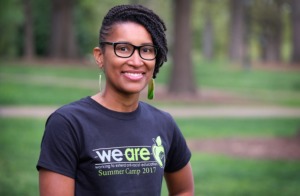
Teaching children to challenge racism
Ronda Taylor Bullock '05 (M.A.T.), '18 (Ph.D.) didn't wait to finish her doctorate before tackling big classroom issues. She led the creation of “we are,” which stands for “working to extend anti-racist education.” The organization conducts professional development workshops for teachers and offers summer camps to elementary school students.
'Possibilities in Practice: Social Justice Teaching in the Disciplines'
Five UNC School of Education doctoral alumnae — Alison LaGarry, Summer Pennell, Ashley Boyd, and Hillary Parkhouse — all focused on different disciplines, including English, history, and music. But each wanted to apply social justice in those disciplines. With another Carolina alumna, Silvia Bettez, they authored "Possibilities in Practice: Social Justice Teaching in the Disciplines," which they believed could help teachers in training who were also interested in social justice but weren’t sure how it could be integrated into their classrooms.
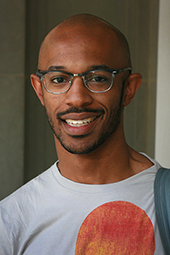
Village of Wisdom
Since his time as a doctoral student at the School, William Jackson ’18 has made a difference in the lives of Durham children and their families through the nonprofit Village of Wisdom. He works with black families in Durham to help children develop self-confidence and positive identities to help them achieve in school. In addressing black children’s need to develop strong identities, he hopes to help them succeed in a world where they have to navigate between the culture of their home, family life, and neighborhood life and that of school.
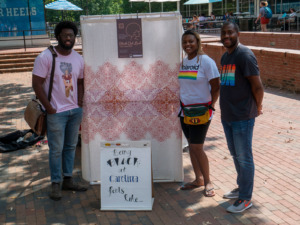
'Black Out Loud'
Doctoral students Cortland Gilliam and Jerry J. Wilson partnered with undergraduate De’Ivyion Drew to create #BlackOutLoudUNC, a collaborative art exhibit that explores representations of Blackness at UNC-Chapel Hill. Co-sponsored by the Center for the Study of the American South, #BlackOutLoudUNC highlights the beauty and heterogeneity of Blackness within the context of a historically white, public university in the American South. Among the many questions that the project considers is: What does it mean to be seen as a guest in the home that your ancestors built? Learn more at BlackOutLoudUNC.org.
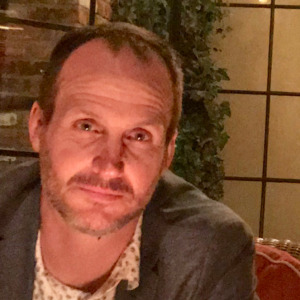
Addressing racism and white supremacy in public schools
Doctoral candidate Christoph Stutts believes that racism and white supremacy are necessary topics in public schools. Stutts, the McColl Dissertation Fellow at the Center for the Study of the American South and a former public school social studies teacher, collaborates with middle and high school social studies teachers, working through curriculum and practice problems. His research compares the experiences of three public school educators who teach standard U.S. History, and who are committed to teaching about the history of racism and white supremacy in the South.